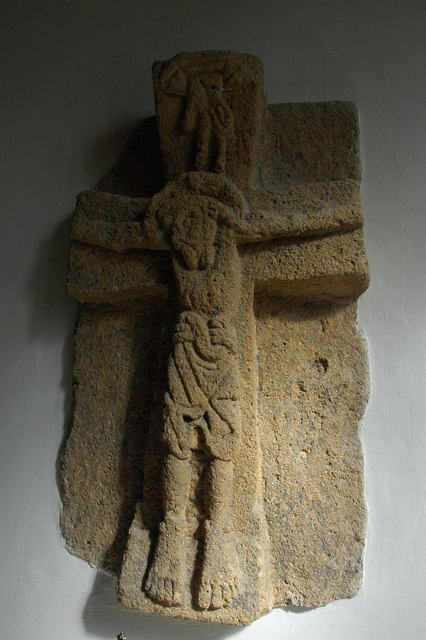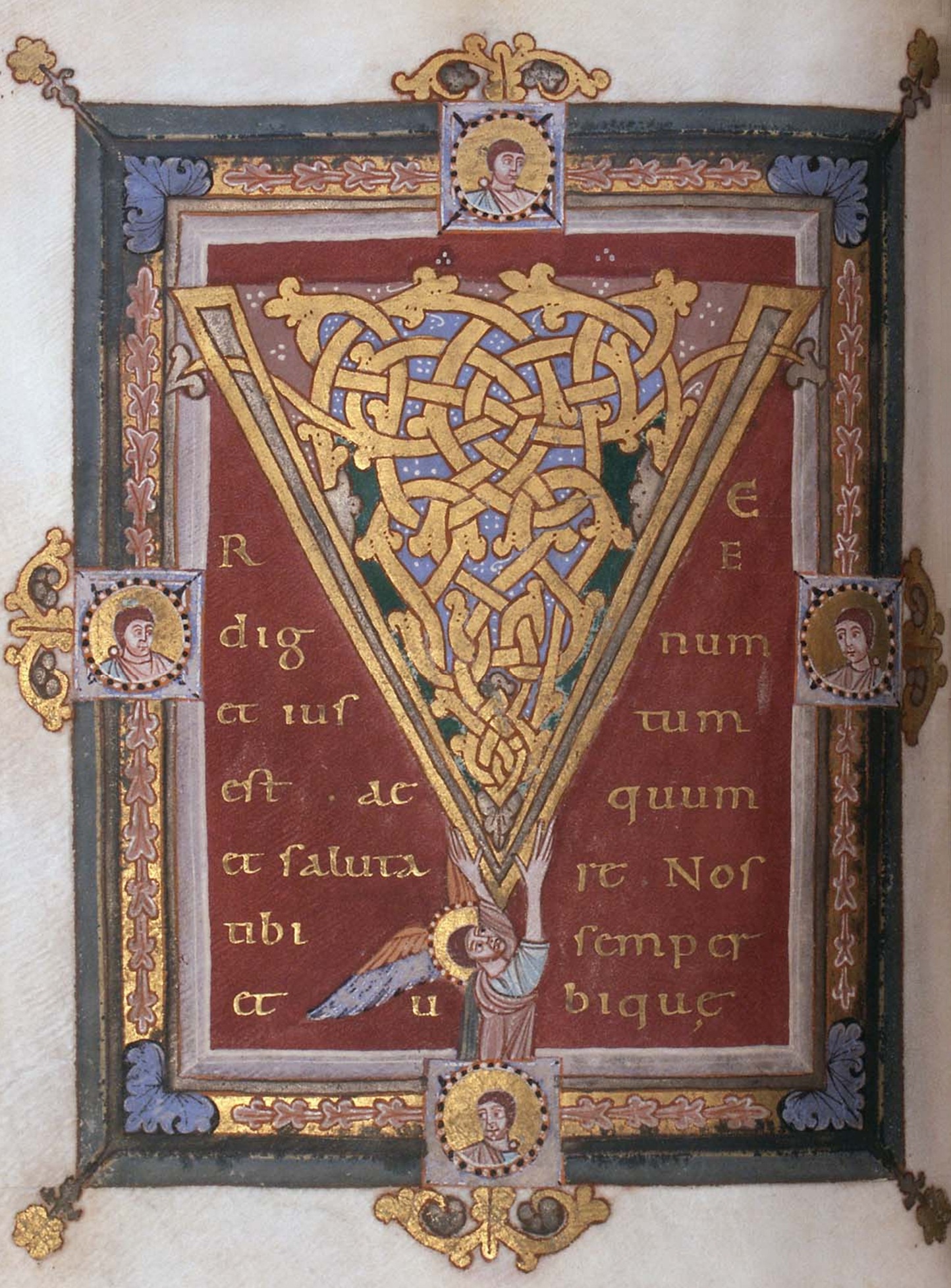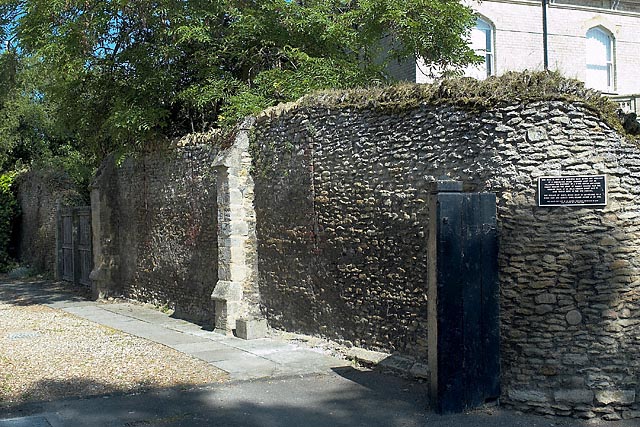|
Germanus Of Winchester
Germanus (sometimes Germanus of Winchester, died circa 1013) was a medieval English abbot and Benedictine monk. He travelled to Rome in about 957 and became a monk at Fleury Abbey in France. Back in England by 964 he served as a monastic official before being named abbot of Winchcombe Abbey in about 970, a position he was removed from in 975. Germanus may have become abbot of Cholsey Abbey in 992. Early career Although Germanus's name is not Anglo-Saxon, Byrhtferth, a contemporary who wrote the '' Vita Oswaldi'', which contains much information on Germanus, states that he was a native of Winchester. Germanus accompanied Oscytel, the Archbishop of York, and Oswald of Worcester, on their trip to Rome in about 957, purportedly to collect Oscytel's pallium, the symbol of an archbishop's authority. This journey, however, has been challenged by the historian Donald A. Bullough, who argues that no previous archbishops of York had collected their palliums in person. He also points o ... [...More Info...] [...Related Items...] OR: [Wikipedia] [Google] [Baidu] |
Winchcombe Abbey
Winchcombe Abbey is a now-vanished Benedictine abbey in Winchcombe, Gloucestershire; this abbey was once in the heart of Mercia, an Anglo Saxon kingdom at the time of the Heptarchy in England. The Abbey was founded c. 798 for three hundred Benedictine monks, by King Offa of Mercia or King Coenwulf of Mercia. In its time, it was the burial place of two members of the Mercian ruling class, the aforementioned Coenwulf and his son Cynehelm, later venerated as Saint Kenelm.''Victoria County History, Gloucestershire'', ii, 66-72 According to more recent research, the original foundation by Offa in 787 was for a community of nuns, to which Coenwulf added a community of men in 811 to create a double monastery. The nunnery ceased to exist sometime after 897. The abbey was refounded ... [...More Info...] [...Related Items...] OR: [Wikipedia] [Google] [Baidu] |
Dean (Christianity)
A dean, in an ecclesiastical context, is a cleric holding certain positions of authority within a religious hierarchy. The title is used mainly in the Roman Catholic Church, the Anglican Communion, and many Lutheran denominations. A dean's assistant is called a sub-dean. History Latin '' decanus'' in the Roman military was the head of a group of ten soldiers within a '' centuria'', and by the 5th century CE, it was the head of a group of ten monks. It came to refer to various civil functionaries in the later Roman Empire.''Oxford English Dictionary'' s.v.' Based on the monastic use, it came to mean the head of a chapter of canons of a collegiate church or cathedral church. Based on that use, deans in universities now fill various administrative positions. Latin ''decanus'' should not be confused with Greek ''diákonos'' (διάκονος),' from which the word deacon derives, which describes a supportive role. Officials In the Roman Catholic Church, the Dean of the Colle ... [...More Info...] [...Related Items...] OR: [Wikipedia] [Google] [Baidu] |
English Abbots
English usually refers to: * English language * English people English may also refer to: Peoples, culture, and language * ''English'', an adjective for something of, from, or related to England ** English national identity, an identity and common culture ** English language in England, a variant of the English language spoken in England * English languages (other) * English studies, the study of English language and literature * ''English'', an Amish term for non-Amish, regardless of ethnicity Individuals * English (surname), a list of notable people with the surname ''English'' * People with the given name ** English McConnell (1882–1928), Irish footballer ** English Fisher (1928–2011), American boxing coach ** English Gardner (b. 1992), American track and field sprinter Places United States * English, Indiana, a town * English, Kentucky, an unincorporated community * English, Brazoria County, Texas, an unincorporated community * Englis ... [...More Info...] [...Related Items...] OR: [Wikipedia] [Google] [Baidu] |
Charter
A charter is the grant of authority or rights, stating that the granter formally recognizes the prerogative of the recipient to exercise the rights specified. It is implicit that the granter retains superiority (or sovereignty), and that the recipient admits a limited (or inferior) status within the relationship, and it is within that sense that charters were historically granted, and it is that sense which is retained in modern usage of the term. The word entered the English language from the Old French ''charte'', via Latin ''charta'', and ultimately from Greek χάρτης (''khartes'', meaning "layer of papyrus"). It has come to be synonymous with a document that sets out a grant of rights or privileges. Other usages The term is used for a special case (or as an exception) of an institutional charter. A charter school, for example, is one that has different rules, regulations, and statutes from a state school. Charter can be used as a synonym for "hire" or "lease ... [...More Info...] [...Related Items...] OR: [Wikipedia] [Google] [Baidu] |
Orléans
Orléans (;"Orleans" (US) and , ) is a city in north-central France, about 120 kilometres (74 miles) southwest of Paris. It is the prefecture of the department of and of the of . Orléans is located on the ... [...More Info...] [...Related Items...] OR: [Wikipedia] [Google] [Baidu] |
Sacramentary Of Winchcombe
In the Western Church of the Early and High Middle Ages, a sacramentary was a book used for liturgical services and the mass by a bishop or priest. Sacramentaries include only the words spoken or sung by him, unlike the missals of later centuries that include all the texts of the mass whether read by the bishop, priest, or others. Also, sacramentaries, unlike missals, include texts for services other than the mass such as ordinations, the consecration of a church or altar, exorcisms, and blessings, all of which were later included in Pontificals and Rituals instead. In the late 20th century, the word ''sacramentary'' was used in the United States and some other English-speaking countries for the English translation of the Roman Missal, particularly those that, like earlier sacramentaries, omitted parts of the Mass not said by the priest. Decline of the sacramentary Other books used in the celebration of Mass included the Graduale (texts mainly from the Psalms, with musica ... [...More Info...] [...Related Items...] OR: [Wikipedia] [Google] [Baidu] |
Cambridge Psalter
Cambridge ( ) is a university city and the county town in Cambridgeshire, England. It is located on the River Cam approximately north of London. As of the 2021 United Kingdom census, the population of Cambridge was 145,700. Cambridge became an important trading centre during the Roman and Viking ages, and there is archaeological evidence of settlement in the area as early as the Bronze Age. The first town charters were granted in the 12th century, although modern city status was not officially conferred until 1951. The city is most famous as the home of the University of Cambridge, which was founded in 1209 and consistently ranks among the best universities in the world. The buildings of the university include King's College Chapel, Cavendish Laboratory, and the Cambridge University Library, one of the largest legal deposit libraries in the world. The city's skyline is dominated by several college buildings, along with the spire of the Our Lady and the English Martyrs Chu ... [...More Info...] [...Related Items...] OR: [Wikipedia] [Google] [Baidu] |
British Library
The British Library is the national library of the United Kingdom and is one of the largest libraries in the world. It is estimated to contain between 170 and 200 million items from many countries. As a legal deposit library, the British Library receives copies of all books produced in the United Kingdom and Ireland, including a significant proportion of overseas titles distributed in the UK. The Library is a non-departmental public body sponsored by the Department for Digital, Culture, Media and Sport. The British Library is a major research library, with items in many languages and in many formats, both print and digital: books, manuscripts, journals, newspapers, magazines, sound and music recordings, videos, play-scripts, patents, databases, maps, stamps, prints, drawings. The Library's collections include around 14 million books, along with substantial holdings of manuscripts and items dating as far back as 2000 BC. The library maintains a programme for content a ... [...More Info...] [...Related Items...] OR: [Wikipedia] [Google] [Baidu] |
Ramsey Psalter
The Psalter of Oswald also called the Ramsey Psalter (British Library, Harley MS 2904) is an Anglo-Saxon illuminated psalter of the last quarter of the tenth century. Its script and decoration suggest that it was made at Winchester, but certain liturgical features have suggested that it was intended for use at the Benedictine monastery of Ramsey Abbey, or for the personal use of Ramsey's founder St Oswald. The litany includes a gold-lettered triple invocation of St Benedict of Nursia, and at the time of writing, probably before Oswald's death in 992, Ramsey was the only English monastery dedicated to this saint. A "Psalter of St Oswald" was listed in a 14th-century catalogue of the library at Ramsey. This manuscript is not to be confused with another Ramsey Psalter in the Morgan Library & Museum, New York (MS M. 302), made between 1286 and 1316. The text is a Latin psalter using the Gallican version. The "elegant English caroline minuscule" of the script inspired the i ... [...More Info...] [...Related Items...] OR: [Wikipedia] [Google] [Baidu] |
Eadnoth The Younger
Eadnoth the Younger or Eadnoth I was a medieval monk and prelate, successively Abbot of Ramsey and Bishop of Dorchester. From a prominent family of priests in the Fens, he was related to Oswald, Bishop of Worcester, Archbishop of York and founder of Ramsey Abbey. Following in the footsteps of his illustrious kinsman, he initially became a monk at Worcester. He is found at Ramsey supervising construction works in the 980s, and around 992 actually became Abbot of Ramsey. As abbot, he founded two daughter houses in what is now Cambridgeshire, namely, a monastery at St Ives and a nunnery at Chatteris. At some point between 1007 and 1009, he became Bishop of Dorchester, a see that encompassed much of the eastern Danelaw. He died at the Battle of Assandun in 1016, fighting Cnut the Great. Family Eadnoth the Younger was the son of Æthelstan Mannessune by a kinswoman of Oswald, Bishop of Worcester and Archbishop of York.Wareham, "St Oswald's Family", pp. 49–50 His father came from ... [...More Info...] [...Related Items...] OR: [Wikipedia] [Google] [Baidu] |
Ivo Of Ramsey
Saint Ivo (also known as Ives) was a Cornish bishop and hermit, and became the eponymous saint of St Ives, Huntingdonshire. History The discovery of Bishop Ivo's remains in 1001 was first mentioned briefly in John of Worcester's ''Chronicon ex chronicis''. He appears in the historical sources in 1001/2 when a peasant allegedly found his coffin while ploughing at Slepe (later renamed St. Ives).Blair, "Handlist", p. 541 The body appeared to be invested with the insignia of a bishop. According to an account by Goscelin of St Bertin, St. Ivo appeared to the ploughman in several visions, which obliged him to communicate the discovery to the abbot's reeve. The latter did not take this seriously at first, whereupon the saint also appeared to him in visions. When the monastic community learned of this, they rejoiced greatly at the discovery. The Abbot of Ramsey, Eadnoth the Younger, built a church in Ivo's honor near the site. The neighboring village with market rights was rename ... [...More Info...] [...Related Items...] OR: [Wikipedia] [Google] [Baidu] |
Relic
In religion, a relic is an object or article of religious significance from the past. It usually consists of the physical remains of a saint or the personal effects of the saint or venerated person preserved for purposes of veneration as a tangible memorial. Relics are an important aspect of some forms of Buddhism, Christianity, Islam, shamanism, and many other religions. ''Relic'' derives from the Latin ''reliquiae'', meaning "remains", and a form of the Latin verb ''relinquere'', to "leave behind, or abandon". A reliquary is a shrine that houses one or more religious relics. In classical antiquity In ancient Greece, a city or sanctuary might claim to possess, without necessarily displaying, the remains of a venerated hero as a part of a hero cult. Other venerable objects associated with the hero were more likely to be on display in sanctuaries, such as spears, shields, or other weaponry; chariots, ships or figureheads; furniture such as chairs or tripods; and clothi ... [...More Info...] [...Related Items...] OR: [Wikipedia] [Google] [Baidu] |

.jpg)
.jpg)





